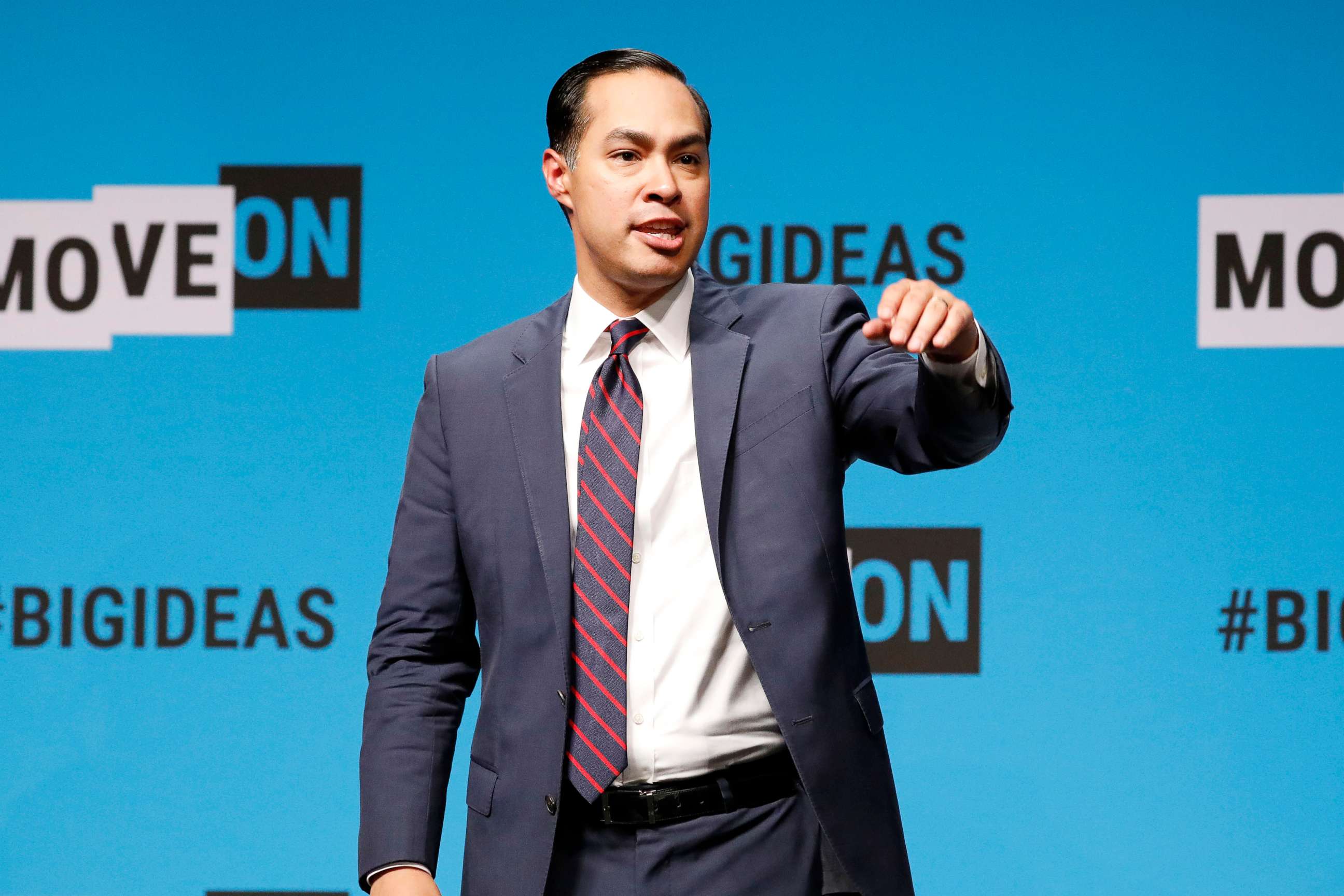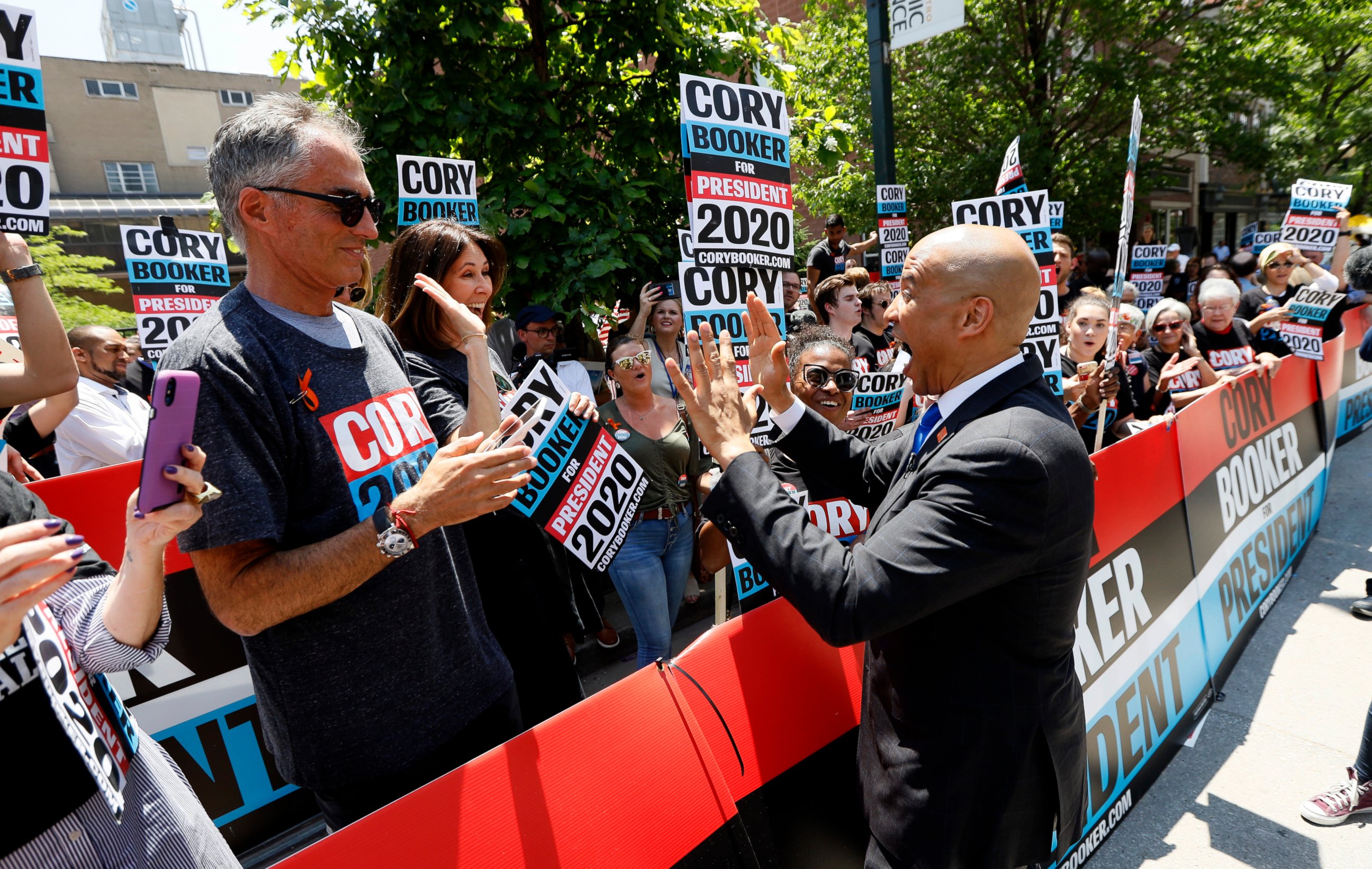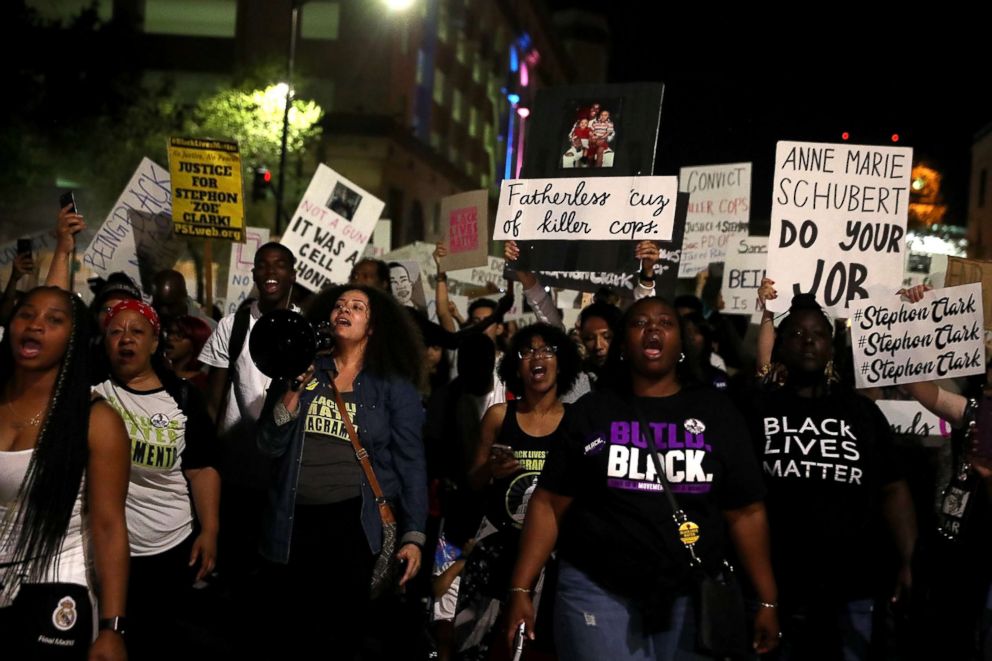2020 candidates suggest decriminalizing marijuana, improving police training
Ideas include more police training, limiting public defenders' workloads.
As the crowded field of 2020 presidential candidates attempt to tackle criminal justice reform, their approaches are as varied and complicated as the problems. There’s talk of decriminalizing marijuana, improving the training of American police officers and limiting the workload of full-time public defenders.
Earlier this month, former Housing and Urban Development Secretary Julián Castro released a multi-tiered plan to reform police across the nation. When he teased the "People First Policing Plan," at the MoveOn #BigIdeas forum in San Francisco, he received a standing ovation when he referenced the arrest of Dylann Roof, who killed nine African Americans at the Emanuel AME Church in Charleston, South Carolina. He was unharmed by police during his arrest, "as he should be," Castro said.
"He murdered nine people while they were worshiping and then a couple of hours later, he was apprehended by police without incident," Castro said. "But it made me think then what about Eric Garner? And what about Philando Castile?"
His sweeping police reform plan, which sets nationwide standards for police conduct, would require officers to exhaust all non-lethal options for subduing suspects before lethal measures are used.
Another tenet of Castro's plan is to increase transparency across police departments by obligating them to report incidents of injury caused by weapon discharges or arrests. Along with the creation of a national database where cases of police decertification can be tracked, a Castro administration would investigate all cases of officer involved shootings across the nation.

Following a speech at the California Democratic State Party Convention on Sunday, Castro commended police departments that are "doing good work investing in community policing, getting to know people in neighborhoods that oftentimes have been overpoliced and targeted."
Castro's plan also lays out the potential for federal funding for police departments to be cut if they don't adhere to his policy.
"This is not a case of a few bad apples " Castro said in a news release. "The system is broken."
While Castro’s hard-line stance on police addresses one aspect of the criminal justice system, others have proposed changes to the nation’s sentencing laws and addressing laws that disproportionately affect people of color.
Sen. Cory Booker, D-N.J., has carved out a lane for himself as a strong advocate of criminal justice reform. In 2018, he co-sponsored the "First Step Act," a bipartisan bill that aims to reduce the rates of recidivism for federal prisoners by expanding early-release programs. The bill modified the "three-strikes" sentencing penalty -- established in the 1994 crime bill -- from life in prison to 25 years for people convicted of nonviolent drug offenses.
President Donald Trump signed the bill into law on December. In March, a month after Booker announced his run for president, he introduced the follow-up bill called, "The Next Step Act," which aims to expunge the records of nonviolent drug offenders and includes provisions to legalize marijuana at the federal level.
While most 2020 candidates agree that marijuana should be decriminalized, and in some cases legalized, Sen. Kirsten Gillibrand, D-N.Y., became the first candidate to propose a plan to monetize and build an economy around recreational marijuana in addition to tackling the criminal justice aspect to the drug.

Gillibrand proposes legalizing marijuana for recreational use for adults and imposing a tax on the sale of marijuana products. The revenue from the tax would be put into a trust fund that would support programs for communities most affected by hardline marijuana laws.
Former Vice President Joe Biden has also talked in favor of decriminalizing marijuana and expunging criminal records for possession charges, but thinks each state should decide whether or not to legalize it.
Biden's lukewarm approach to marijuana puts him at odds with other Democratic contenders, such as Sens. Elizabeth Warren and Bernie Sanders, who have each supported sweeping legislation to reform how the criminal justice system deals with the drug.
Biden's previous positions on criminal justice reform has made him an outlier on several occasions among other candidates. He has been criticized at length for doubling down on his endorsement of the 1994 crime bill, often credited by those on the left for being a major driving force of mass incarceration in the United States.
The Violent Crime Control and Law Enforcement Act created the "three-strikes" rule, which mandated harsher sentences up to life in prison for defendants who had committed a third felony after being convicted in state or federal court of two previous felonies -- at least one of which was serious or violent.
The bill also offered billions of dollars for the construction of new prisons to states that created tougher sentencing laws.

At a campaign stop in Nashua, New Hampshire, Biden defended his support of the crime bill.
"Folks, let's get something straight," Biden said. "This idea that the crime bill generated mass incarceration, it did not generate mass incarceration."
Kara Gotsch, director of Strategic Initiatives at the Sentencing Project told ABC News that there was blame to go around to everyone.
"The federal government, in the 1990s, certainly, under the Clinton administration, really prioritized the message of tough on crime," she said. "We had many years, many presidential administrations calling for tough on crime ... all our money went into police, putting more police on the ground, increasing the number of arrests, putting more communities of color, in jeopardy and putting them behind bars ... They have a much louder microphone than the people who are at and the state local level so they do share in the blame for mass incarceration."
Booker's plan also calls for an increase of implicit racial bias training for officers, emphasizing deescalation and use-of-force, but he also tackles the "racially-targeted sentencing disparity between crack and powder cocaine sentences by reducing it from 18:1 to 1:1."
Sen. Kamala Harris' career as district attorney of San Francisco and later, California's Attorney General, has come under scrutiny by some on the left. Most notably, her campaign as against truancy as district attorney has been criticized as an attempt to criminalize parents whose children missed more than 30 days of schools.
In an April interview on the podcast "Pod Save America," the senator expressed regret for the "unintended consequences" of her tough stance on truancy.
"My regret is that I have now heard stories that where, in some jurisdictions, DAs have criminalized the parents," Harris said. "And I regret that that has happened and that, the thought that anything that I did could have led to that, because that certainly was not the intention, was never the intention."
But the California senator, who has painted herself as a "progressive prosecutor" has also been an avid critic of mass incarceration and private prisons.
"When this country, incarcerates more people than any other country, America must admit it has a problem of mass incarceration," Harris said at a forum hosted by the Rev. Al Sharpton.
In March, Harris introduced the "Ensuring Quality Access to Legal Defense (EQUAL Defense) Act of 2019. The bill would create a $250 million grant program to fund public defense. It also seeks to limit the workload for full-time public defenders, bridge the pay gap between public defenders and prosecutors within 5 years, and authorize $5 million for non-profit and government organizations to train public defenders.
"All too often, our public defenders are overworked and lack sufficient resources. This makes public defense unsustainable over the long haul," Harris said. "And the thing that suffers is the integrity of our system of justice, which is supposed to be based on fairness and equality. It's wrong, and it's the opposite of justice."



